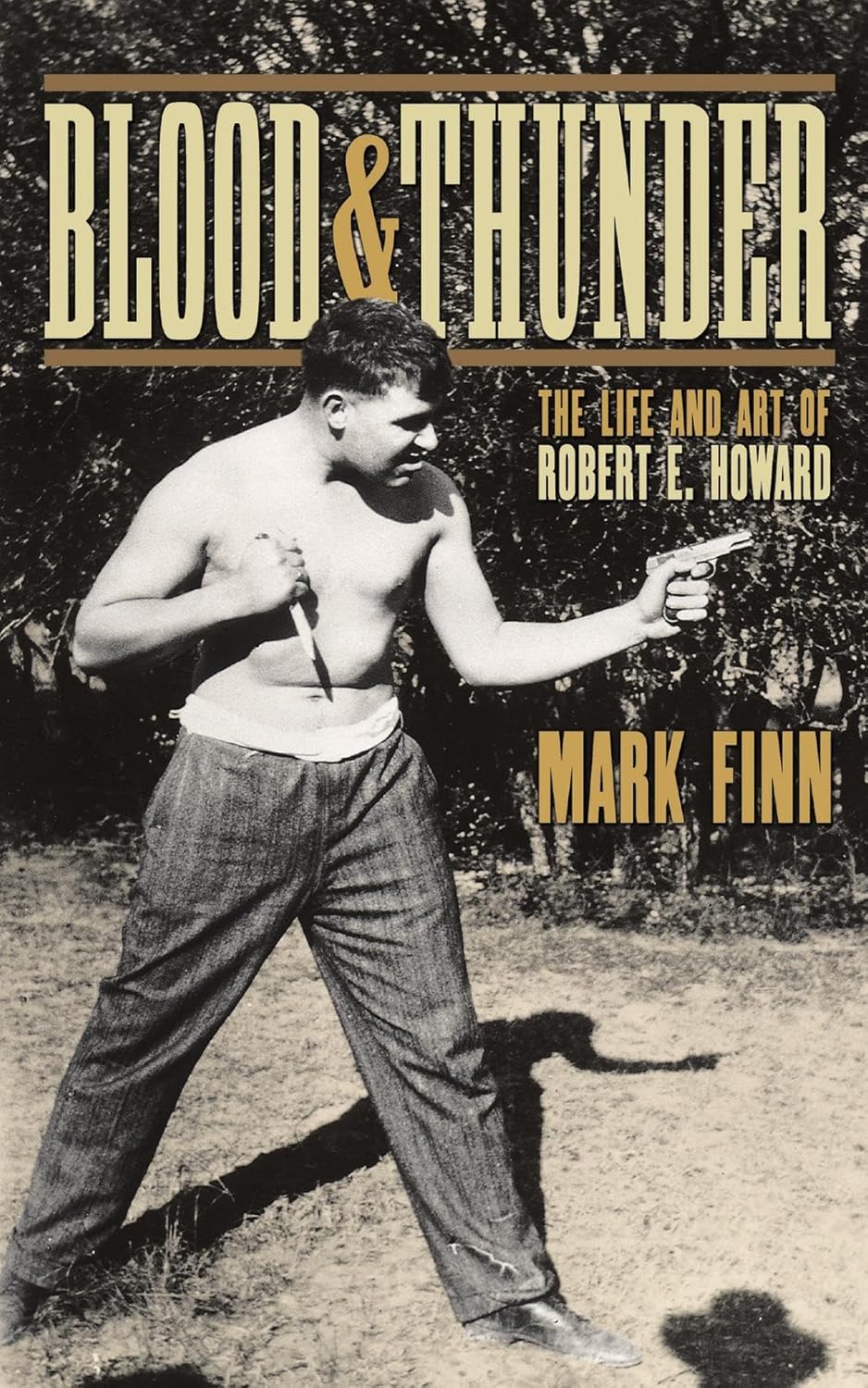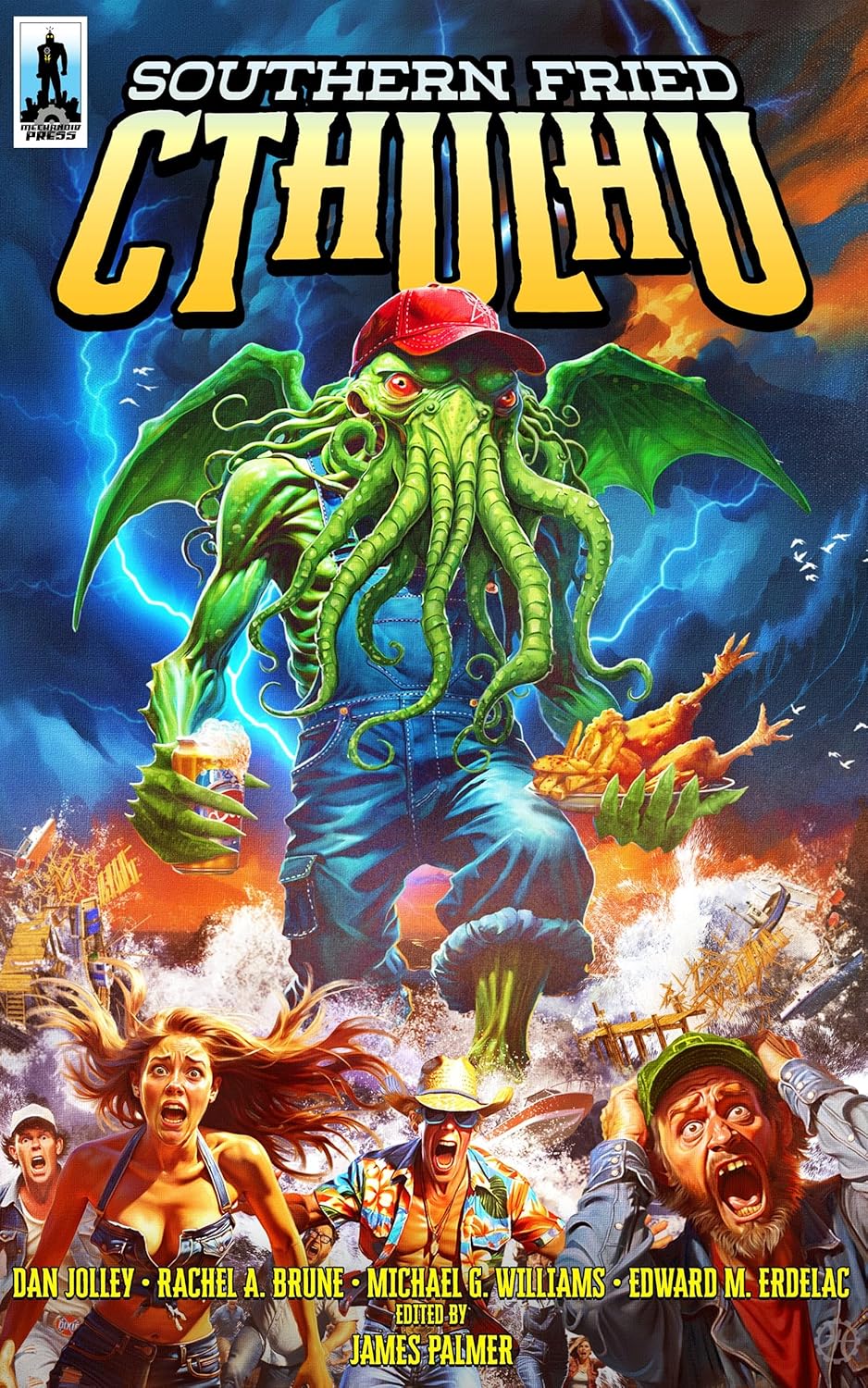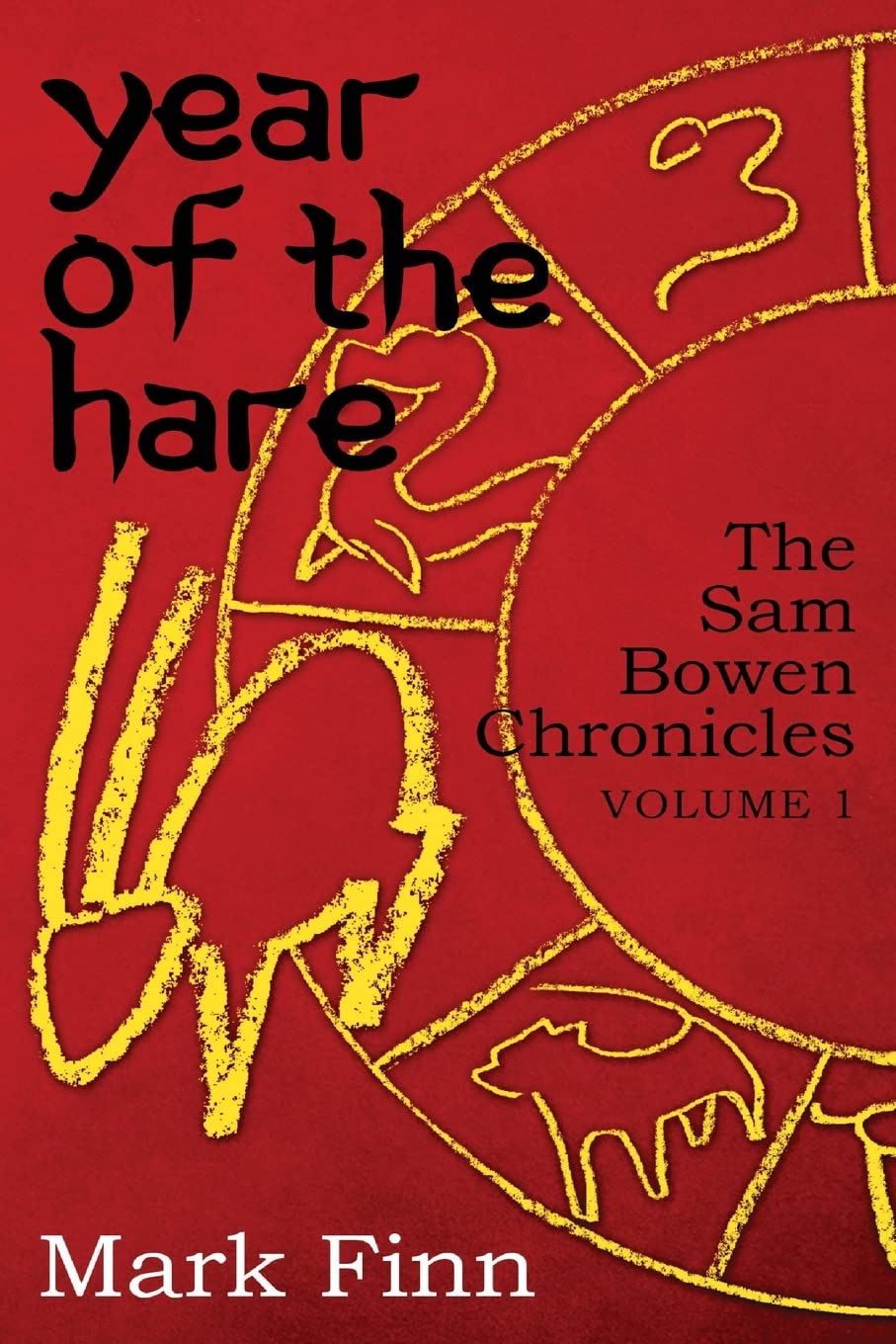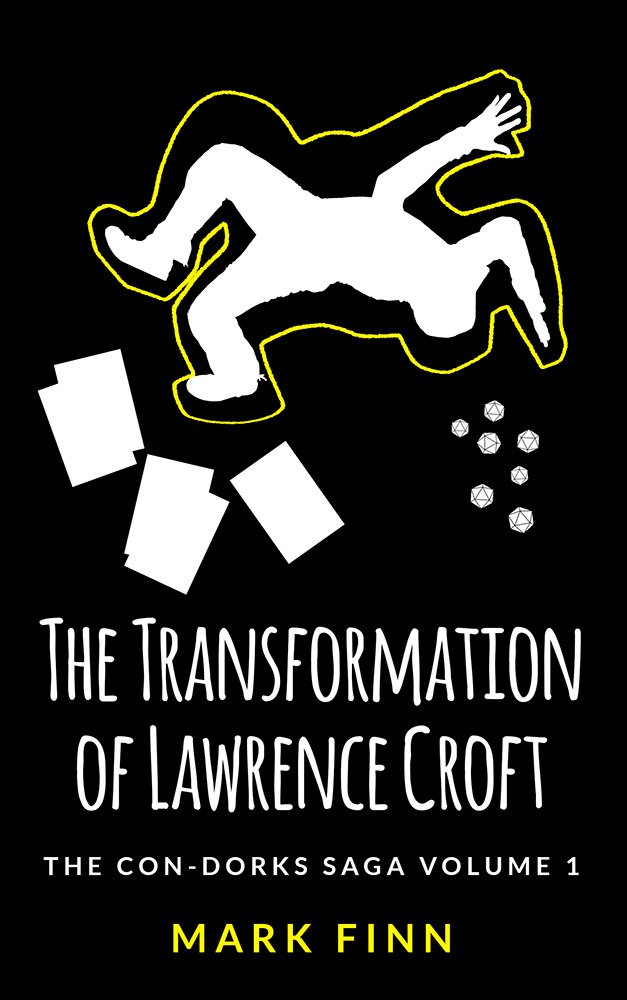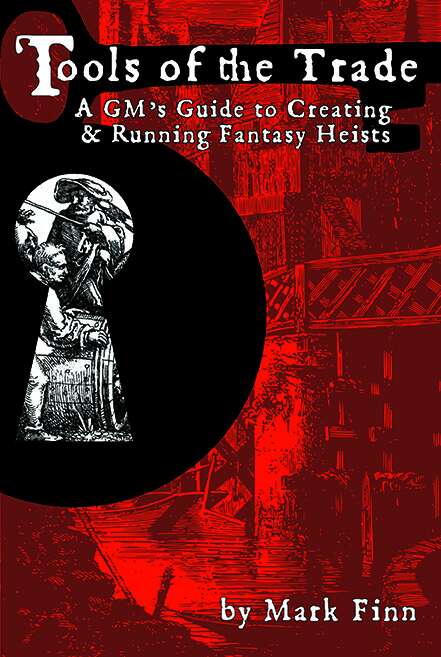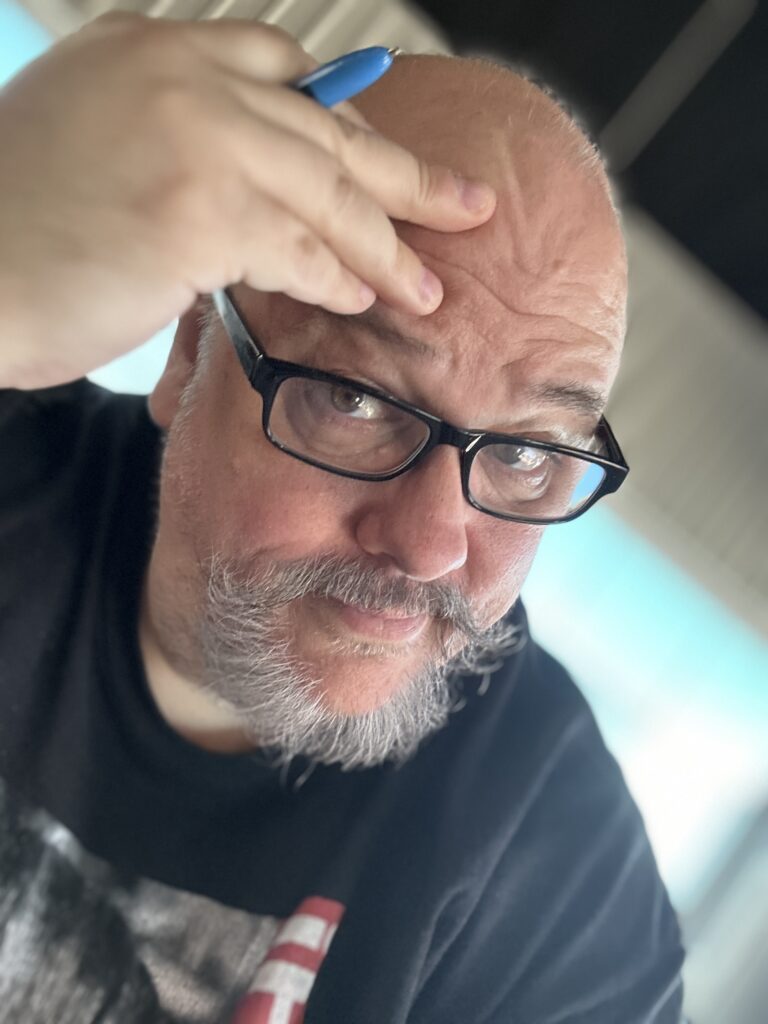
WRITER THINGS
How long have you been writing, and what are your preferred genres and settings?
I’ve been writing professionally since the early 1990s. I’ve done comics, radio scripts, short stories, novels, a biography, lots of non-fiction essays and academic papers and most recently, RPG game design. I prefer fantasy, horror, and science fiction when I write, but I also like crime and mystery and historical fiction and I’ve written in all of those genres.
Who or what originally inspired you to try your hand at writing?
I first read Robert E. Howard’s Conan the Usurper when I was 12 years old and it blew my doors off. He was the author who inspired me to use words to create stories. He became my guy, and when I found out he lived and wrote in Cross Plains, Texas (about 40 miles from Abilene, my hometown), I said “If he could do that, there, than I can do this, here.”
What lengths of stories do you prefer, i.e. short stories/flash fiction/novels? What formats do you like to release your work in, i.e. ebook, paperback, audiobook?
I love love LOVE short stories. I think it’s a superior format for telling a complete story in a small space. There’s something magical about picking up an anthology and discovering new authors from reading their amazing, brilliantly crafted short fiction. I’m not scared of writing novels or lengthy books. Word count is just a number, man. But that’s my default setting. As for formats, well, I’ve kinda done it all. I prefer traditional publishing, meaning a book, whether it’s a POD or a paperback, but I am coming around to the idea of ebooks. As for audiobooks, well, I’ve had other people adapt my work for that medium and at this point, I’d rather read the book myself. I think I’m a good reader and that would come through in an audiobook. It’ll probably be Blood & Thunder first. I’ve got a group of people who routinely hound me for that, so I’ll do it just to shut them up.
What’s your publishing method – trad or self – and are there any companies, agencies, or platforms you really like working with? Are there any that you absolutely will not work with?
Right now, my method of publishing is a Frankenstein’s monster. I have a blog on my website and I also write a newsletter on Substack. My gaming stuff is published through POD and digital platforms like DriveThruRPG. My fiction and non-fiction can be found in a number of traditionally published books online. I’m co-editing an anthology for Baen books right now, which is cool and a little nerve-wracking. I don’t have a preference, unless it’s for getting paid. It’s not a lot of money, but I have a bacon habit and that stuff ain’t cheap, so I’m happy whenever anyone buys something of mine, as the dough will eventually trickle down into my bank account.
What does your writing environment look like? Are there specific or unique features to your drafting and writing process that you feel are interesting?
I believe in the process of writing. I also think that the process of writing is alchemy. No two writers do it the same way. I’m always leery of “How to Write” books, because all they do is get in my head and jack with my well-oiled machine. That being said, my process depends greatly on what the project is. In the past, I’ve used playlists to keep my head in a particular kind of story. If I’m writing a novel, that music almost always needs to be jazz, and I have a narrow set of musicians I will allow into my brain for that: Charles Mingus, Cannonball Adderley, John Coltrane, etc. I like my jazz from the bee bop and big band era. I’ve used soundtracks in the past as well. If I’m writing a novel, I will use an outline to break down the story beats in each chapter. I don’t do this for short stories, but I do keep those beats in my head. I have found that, for whatever reason, it’s really hard for me to write dialogue with my shoes on. It is what it is. Don’t judge me.
What are your thoughts on pen names?
I have one! I have no problem with it. One of my favorite authors, Donald Westlake, used different pen names for different mystery and crime books that he wrote. It’s a great way to keep track of everything and it makes the pen name into a kind of signature. If I see a Richard Stark novel, I know it’s going to be a hard-boiled crime story about a heist. If I see Westlake’s name on a book, I know it may well be a crime story, but it won’t be hard-boiled and it’ll most likely be comedic in some way.
MEATY THINGS
What, if any, social issues do you feel like you address the most in your work?
I don’t know that I’m the best person to address social issues, as my work tends to be an escape from the Real World and all of its Hobgoblins. That’s not to say that I’m not concerned at all; I am. But I have a tendency to lecture and orate and those things will capsize a fiction project quicker than anything. The only author I know of who could do it so blatantly and get away with it was Mack Reynolds, a science fiction author with strong convictions about what’s wrong with society, and he’ll tell you all about it when his one or two characters inevitably winds up in a bar, talking. I’ve had stories that end up being about something. Mostly, it’s my reaction to a given problem or occurrence. Those stories are never planned, but sort of develop on their own in the writing process. Whenever I try to put stuff in my fiction, you can spot it a mile away and it always derails the train.
Are there any marginalized populations represented in your work, and how do you relate to those populations?
As a cis-white-hetero middle-aged male, I don’t have a horse in this race. My goal is always to do no harm. I think it’s okay for people to write about people who are different from themselves; that’s how we’ve been making art, food, and culture for over two thousand years and it’s worked out pretty well so far. I do think that we have a responsibility to treat others with respect and not denigrate someone’s culture or reduce their earnestly-held traditions and beliefs to a joke or a gag. There’s no place in the modern world for insensitive depictions of people of color, for instance. We’re better than that. But as artists, we have an obligation to use all of the colors in the Crayons box. Why wouldn’t you?
What kind of material or social impact would you like your work to have? What would you like your literary legacy to be?
I just want to entertain people. Make them take a break from their lives. Lift the needle on that long-playing record. I like connecting with people that way. It would be nice if I had a novel or series or something that took off, but I am pretty sure that when I eventually give up the ghost, the book that will be mentioned in my obituary is “Blood & Thunder.” It’s now considered the definitive biography of Robert E. Howard. I don’t know how I feel about that.
How do you think fiction that takes place in future contexts influences or describes either the present or how we collectively might turn out in the future?
I think all of the best science fiction is always about the right here and the right now. That’s what makes SF such a powerful storytelling genre, because you can really tackle a subject down to the granular level. I also like alarmist SF or post-apocalyptic SF, because it usually contains a message of hope at its core. It says, no matter how badly we wreck the place, we’ll figure out how to keep going. Some days, that’s cold comfort, but that’s just a motivation to not go down that path, isn’t it?
What kind of social critique of the present or the past do you think attracts people to write historical fiction?
I honestly don’t know. Robert E. Howard wrote historical fiction centered around the Crusades and the Middle East and his point was always that there’s cycles of barbarism and civilization that rise and fall, over and over again. For him, those stories usually dealt with one or two protagonists and their change that happens in the course of the story. I don’t know where I was going with that. I think in Howard’s case, the critique was a pessimistic one. I’m not so bothered by the horribleness of history; we’re not there anymore. I would hope that reading about a terrible time period might end on an up note, but as a member of Generation X, I’m okay with the downbeat ending, too.
PROMOTIONAL THINGS
What works are in your current bibliography?
Fiction stuff:
Blood & Thunder: The Life and Art of Robert E. Howard
The Transformation of Lawrence Croft , book 1 of the Con-Dorks Saga
The Chance of a Lifetime, book 2 of the Con-Dorks Saga
One in a Million, book 3 of the Con-Dorks Saga
Year of the Hare, Volume 1 of the Sam Bowen Chronicles
Bowen’s Bluff, Volume 2 of the Sam Bowen Chronicles
Fightcard: the Adventures of Sailor Tom Sharkey (the best funny, weird, historical boxing stories ever)
Road Trip (my three-day novella about Elvis and Cupid on a road trip to South Padre)
Empty Hearts (short story collection about love and loss)
“Off the Eatin’ Path” in Southern Fried Cthulhu
Gaming stuff
Gobsmack! (goblins in 5e)
Tools of the Trade (building heists in fantasy games)
Ogre’s 11 (a heist campaign of 13 jobs)
Polite Society (more thief/rogue stuff for 5e)
Which one(s) are you the most proud of?
Blood & Thunder, hands down.
What stories do you have coming out soon that we can look for?
I just had a story published in an anthology called Southern Fried Cthulhu. Currently, I’m working on new issues of Polite Society for the gaming zine crowd. I’ve got the Baen anthology on my plate, trying to shape it into a book. I’m writing comic scripts for two different indy press companies.
Do you have any social media channels that you’re especially active on? Where can people follow you (in socially acceptable ways)?
I’m on Facebook, but I’d rather not be. I’m also on X, under protest, Blue Sky because I want Twitter to fail, and for reasons unknown, Instagram and Tumblr. I’d rather you just subscribe to the substack newsletter. It’s free (you can pay me, but you don’t have to) and I put an update out every week from the “North Texas Apocalypse Bunker, a totally real and not-at-all made up place.”
